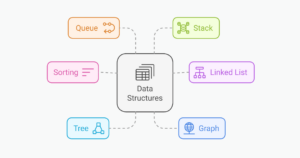6 Common Questions About Writing for the Web, Answered
Recently an ex-journalist friend asked me about freelance writing for the web. Although he might have 10 years’ professional experience on me, his questions came from the perspective of someone who wasn’t au fait with either freelancing or web writing.
This wasn’t the first time. Since there might be some writers out there eager to make their first foray into web writing, either within a company or on a freelance basis, I wanted to cover the most common questions I’m asked. Maybe it will help you find your footing a bit faster.
Let’s start with my friend’s question.
Key Takeaways
- Freelance writing for the web is similar to print and other offline media; the key is to find good publications that reflect your interests and pitch well to them.
- Turning a book into an ebook can be profitable if you already have a strong online following. However, consider the technical skills required to publish and market your book online, and be realistic about your willingness to learn them.
- To market yourself as an online writer, write and publish on reputable sites. Building a portfolio of your work is crucial to establishing new publisher relationships.
I’m a journalist. How do I find freelance work writing online?
If you have experience creating stories for print and other offline media, you don’t need to worry: the web is much the same. Research publications, find some you want to write for, come up with pitches, and send them in. Online, as offline, the money is in reliability and relationships. Good publications pay for the reliable delivery of quality content.
The things to focus on are finding what you consider good publications that reflect the areas and issues you want to cover, and pitching well to them. Use the same approach you would offline: introduce yourself, present a clear, concise outline of your idea, and link to a few other things you’ve done that relate or support your pitch. If you haven’t pitched in a while, and need a refresher, try this article outlining the 7 Principles of Pitching, and have a look at this piece on how not to pitch.
Part of my approach has been to ask friends for recommendations of sites they like, and since many of my friends are readers, this turns up some gold. But I also look through social media and other links for places I want to pitch to, and to spark ideas I can offer existing contacts.
I’m writing for a content mill! Cool huh?
Another variation on this question is, “Have you hard of [content spinning software]? That’s what I use!”
Everyone has their talents, but I’d have to say that this kind of writing isn’t for me and as a consequence I can’t really see how a writer who wants to produce quality content can make any money (or get any satisfaction) out of content milling. Maybe you can do both, for now. But as search engines continue to penalise sites that use this kind of content, those “opportunities” are likely to fade. If you want a career in writing online, you’ll need to think beyond content milling and build broader skills.
Producing unique content on a freelance or contract basis for legitimate publishers is a better bet in the short- and long-term. More bang for your creative buck, and more literal bucks for your time. You’ll also be building up a folio and a solid reputation in the process.

Should I turn my book into an ebook?
If you have a publisher, they should already have electronic editions of your book covered in your contract. So if you’re asking this question, I’m guessing you don’t have a publisher for your book.
That’s okay. But my question is: do you have an audience for it? If you already have a strong online following who you’ve primed to buy from you, you may well be able to make your self-published ebook pay some bills. If not, publishing your manuscript as an ebook is unlikely to make that audience magically appear.
Also, consider that some publishers won’t publish anything that’s already appeared online. Think carefully about the likelihood you’ll make money off your book in the immediate and the more distant future before you publish your manuscript to the web in any format.
Finally, if you decide to go ahead, consider the technical skills you’ll need to learn to publish and market your book on the web, and be realistic about your willingness to learn them to proficiency before you embark. As a starting point, see this post on self-publishing myths. It covers some of the key issues you’re probably weighing up – or need to start weighing up.
Should I start a blog? How do I do that?
This question opens the ultimate can of worms. I’ve been asked it by authors published and unpublished who’ve heard there are huge audiences to be caught and cultivated online, and I don’t want to dissuade them. But again, a blog doesn’t build an audience: the writer does. And the first hurdle with most writers is the realization that you’ll have to do it for free—give your prose away, and give it away regularly.
The next hurdle: marketing the site. How will you promote it to attract more readers? How will you retain those people? Do you understand the nature of the competitive environment you’ll be operating in, and that it covers far more than blogs, and far more than the web?
Most people don’t want to “read a blog”; they want to connect with like minds. Blogging isn’t primarily about writing: it’s about connecting, and while content might be the starting point for that connection, it is in no way the end point. Blogging is where the concept of personal branding was born, and that personal connection now takes place through social media, meetups and conferences, on and offline communities – you name it.
Then there’s the question of building your blog and any media properties that might surround it (for example, a store, or a subscription-based community). Will you do it? Will you pay someone else to? Who will maintain the technical side of things?
I could go on – there are a lot of questions to answer, and they require research. The place to start looking for answers is problogger. Have fun!
What’s the best way to market myself as an online writer?
Write. Publish on reputable sites (possibly including your own). Repeat.
In all honesty, that’s it. If you want to be paid to write, you’ll need a folio of work with which to build new publisher relationships. I’m not talking about a website where you publish samples of the things you’ve done, though you could also have that. But you don’t need it—I’ve never done that. All I have is a bunch of links to published work in a repository you might know called Google. I choose the ones I’ll send with each pitch to a new editor, and paste them into the email. Of course it’s a courtesy—they’ll Google me if they’re interested—but at least this gives them some relevant starting points.
I also have PDFs of project work I’ve done—print materials, things that were online but aren’t now, or aren’t publicly accessible, for example. Depending on the job I can send those through as attachments or print them for an in-person meeting.
At the end of the day, if you want to be a writer in any medium, you need published work to show off. And you always need to be making more.
Should I write for no pay?
This is one of the most controversial questions among writerly types. It devalues the art of writing, say some. It’s a good way to get a foothold, say others. It’s a great way to promote your work, say some more.
Ultimately, I think whether you write for no money will depend firstly on whether you’re a trained or professional writer, someone who’s studied writing and understands how it works, or whether you’re a person who’s passionate about writing but is comparatively green. The tactics you use will depend on where you’re starting from, and what you plan to do.
I’d worked as a professional writer for years before I started freelancing seriously, so I always told myself I couldn’t afford to write for no pay. For me, this has been a good way to make sure I earn income from what I do, and focus on paying gigs and improving paying client relationships. Before long I found that not only couldn’t I afford to write for no pay, I didn’t have time to do it.
That’s the best place to be. Do whatever you think will get you there fastest.
Any more questions?
These are the most common questions I’ve been asked about freelance writing, but perhaps you have others. Ask them below if you’re not too shy. And if your experience causes you to disagree with what I’ve said here, let us know how you do it in the comments.
Georgina has more than fifteen years' experience writing and editing for web, print and voice. With a background in marketing and a passion for words, the time Georgina spent with companies like Sausage Software and sitepoint.com cemented her lasting interest in the media, persuasion, and communications culture.





